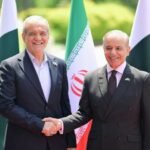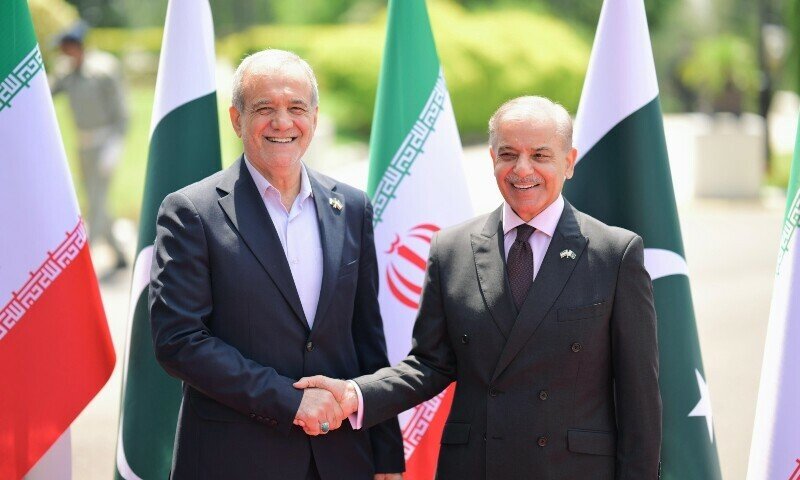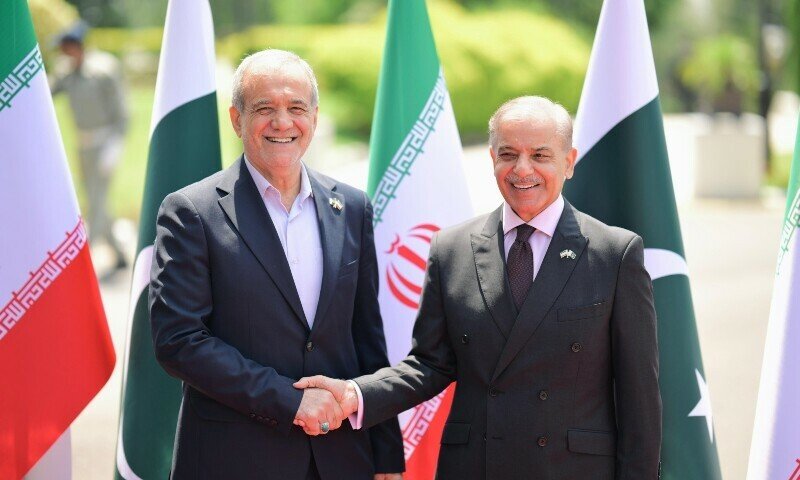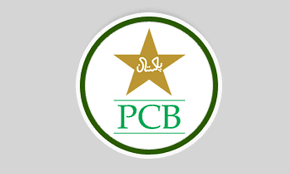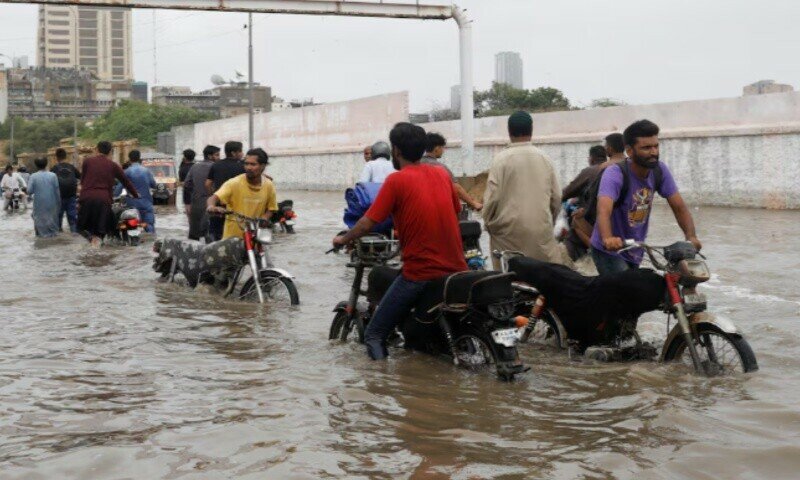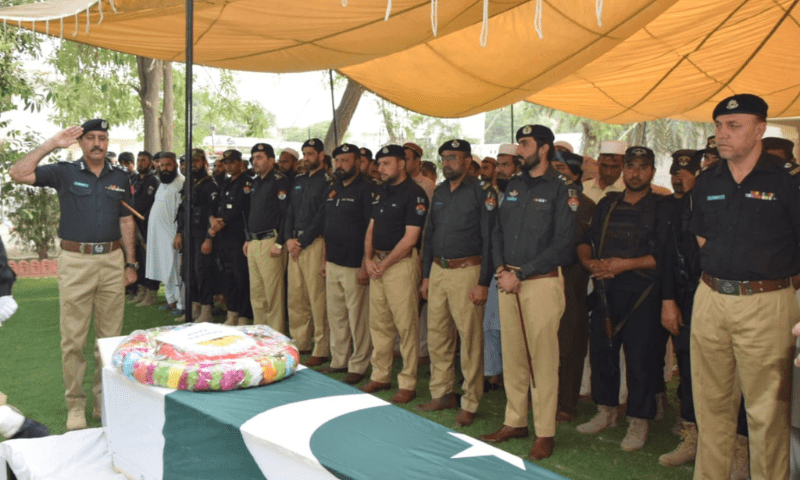Pakistan and Iran agreed on Sunday to raise bilateral trade and reach an annual commercial volume of $ 8 billion, qualifying the move “a new phase of strategic economic association,” said a statement from the Ministry of Commerce.
Pakistan and Iran share nearby ties and have signed multiple agreements in sectors such as energy and commerce.
The decision was taken during a meeting between the Minister of Commerce Jam Kamal and the Minister of Industry, Mines and Commerce of Iranian Iraní, Mohammad Atabak, regardless of the official visit of two days of Iranian President Pezeshkian to Pakistan.
According to the Ministry’s statement, the high -level discussion marked a renewed commitment of both parties to accelerate trade, eliminate border bottlenecks and build associations based on confidence in the priority sectors.
“[During the meeting]Kamal imagined that, if he is completely leveraged, bilateral trade between Pakistan and Iran could easily exceed $ 5–8 billion annually in the coming years, ”said the ministry.
Minister Kamal suggested organizing specific commercial delegations that include representatives of federal and provincial chambers of commerce, allowing centered discussions about access to the market and regulatory facilitation, according to the statement.
“We have done this model successfully in Belarus and elsewhere,” he said in the statement. “Let’s do the same for Iran, starting with sectors that show the greatest potential for mutual benefit.”
The ministers also expressed a shared commitment to increase the use of commercial corridors and existing border facilities. The emphasis was placed on maximizing the potential of the neighborhood’s trade, with Kamal highlighting how ASEAN countries have greatly benefited from trade within their region.
“Geography is an advantage. Pakistan and Iran must use this distance discount. If we do not, we lose the benefits of time and costs,” he said.
Atabak also highlighted the ongoing discussions about the increase in Pakistani exports to Iran and encouraged Swift monitoring of the newly signed agreements.
“The merchants and industrialists in both countries are ready. They trust each other. What they need now is a clear and consistent facilitation mechanism on our side,” he said.
Kamal said that beyond bilateral gains, such connectivity could expand to Turkey, Central Asia, Russia and even parts of the Middle East, creating an economic block of substantial power and resistance.
Atabak supported the idea of celebrating a B2B day dedicated during each high -level visit and offered to bring Iranian business groups to Pakistan for in -depth meetings, according to the statement.
The two ministers recognized the historical depth of Pakistan-Iran’s relations, expressing that recent regional and global developments have brought both nations closer.
“Without the rapid commitment and determination of you and your team, we would not have achieved this stage. The impulse we have created now must translate into structured commercial results,” said Minister Taabak while praising the proactive role of the Pakistani government in the facilitation of bilateral trade progress.
Kamal echoed similar feelings, noting that both governments, as well as the private sector, had demonstrated a strong will and passion for working together.
“There is a moment in diplomacy when iron is hot, and this is that moment. We must act quickly. Delays only complicate things,” he said.
He stressed that the formalities follow passion and political will, and stressed that Pakistan is ready to deepen its economic relationship with Iran through structured channels such as the Joint Economic Commission (JEC), regular B2B exchanges and delegations focused on the sector.
Both ministers agreed to identify specific sectors such as agriculture, livestock, services, energy and cross -border logistics for future collaboration.
Reflecting on the human element of bilateral ties, both sides underlined the points in Cultural and Linguistic common among the people of Pakistan and Iran.
The ministers agreed to accelerate the next session of the JEC, guarantee the participation of public and private stakeholders, and prioritize border facilitation and commercial logistics.
“With the high -level political alignment and mutual trust, Pakistan and Iran seem to be prepared to participate in a new phase of strategic economic association that could remodel regional commercial dynamics,” said the statement.
GIVE CALLA IRANÍ
Separately, Foreign Minister Ishaq Dar called President Pezeshkian on Sunday and transmitted Pakistan’s commitment to maintain “fraternal ties” with Iran, according to a statement from the Ministry of Foreign Affairs.
“The welcome to the Iranian President, the Vice Prime Minister/Minister of Foreign Affairs, reaffirmed Pakistan’s deep commitment to his historical and fraternal ties with Iran, emphasizing his strong foundations in shared history, common cultural heritage, faith and mutual respect,” the statement said.
President Pezeshkian appreciated the support of Pakistan and reaffirmed Iran’s resolution to improve bilateral collaboration in various areas of shared interest. I also expected significant conversations with Pakistani leaders to further reinforce political and economic ties between the two friendly nations, Fo said.
PM Shehbaz receives President Peieshkian in Prime Minister’s house
Prime Minister Shehbaz Sharif received President Pezeshkian at the home of the prime minister in Islamabad, since Iranian President began his official visit on Sunday.
President Pezeshkian received an honor guard and is expected to celebrate with Prime Minister Shehbaz for lunch, followed by high -level meetings, said FM Ishaq to give the media.
The president of Pakistan, Asif Ali Zardari, is also ready to receive his Iranian counterpart for dinner, Dar said.

